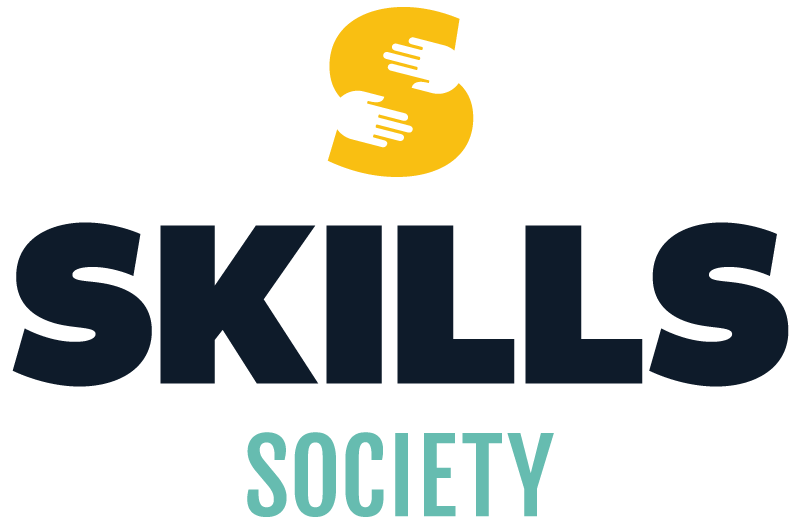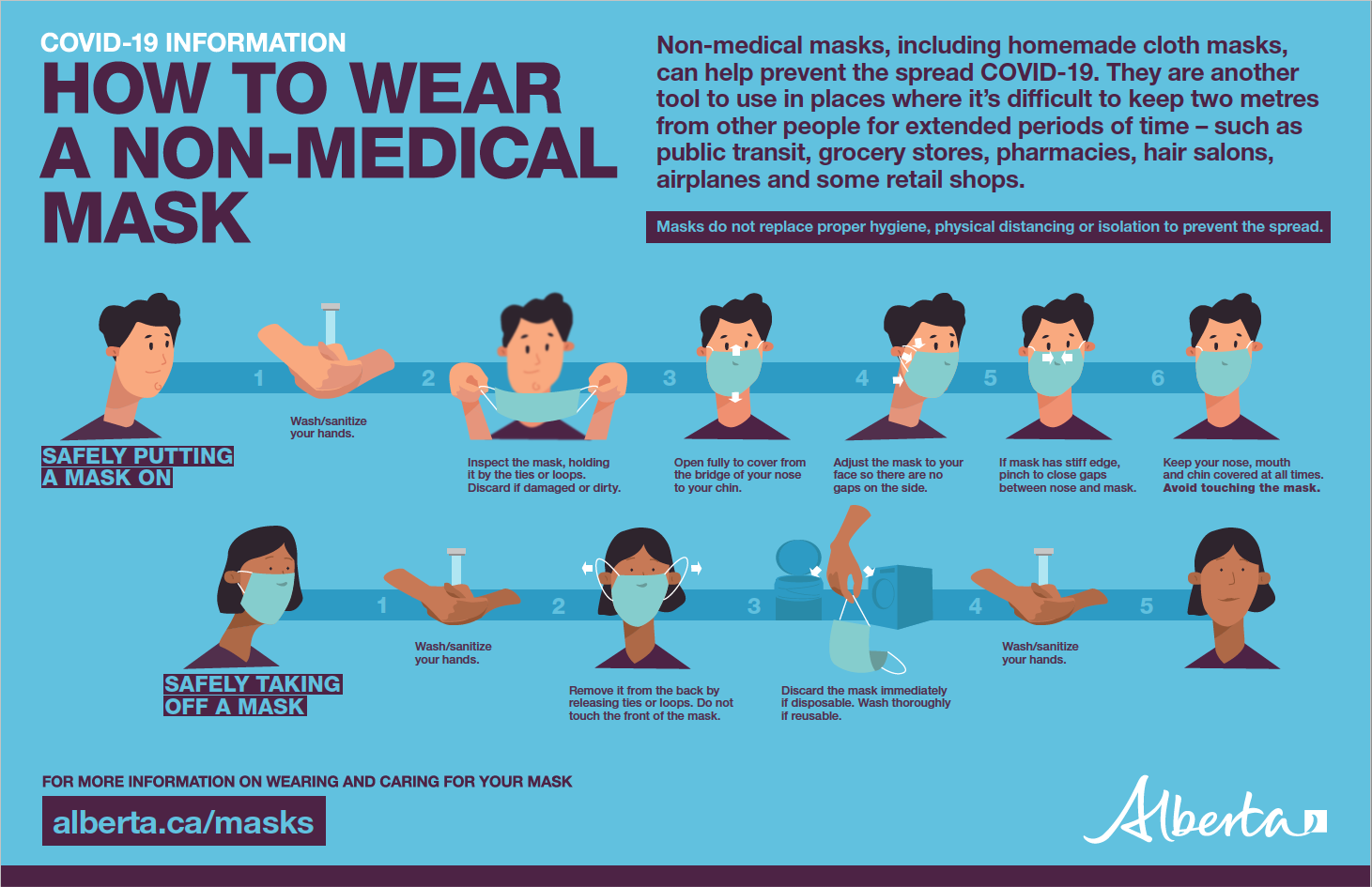Sharing Further Health Recommendations on Ways to Prevent the Spread of COVID-19
Sharing Further Health Recommendations on Ways to prevent the spread of COVID-19
Memo to: Skills Society Employees
CC: Individuals we support, families, guardians
From: Executive Director and Senior Leadership of Skills Society
August 21, 2020
Hi everyone,
As you read in the August 18th message from Skills Society Board Chair Hart Chapelle, despite all of our thorough safeguards we have been navigating one confirmed case of COVID-19 in someone we support and 2 staff. Public Health authorities have been guiding us and everyone who is positive is doing well so far as they isolate and get healthy.
We extend our compassion and support, and wish strength and health to everyone to recover soon. We commend our stellar employees for following procedures and working hard to protect and safeguard people. As far as we know at present, the origin of these 3 cases is unknown and unconnected. What we do know is that Edmonton currently has the highest cases of COVID-19 per 100,000 people in Canada. We also know that in the last 3 weeks COVID-19 cases are also on the rise in the Edmonton Region PDD sector. Approximately 10 individuals and 30 staff across 11 PDD service providers have tested positive. Community spread is rising and public health authorities, our mayor and ourselves are asking everyone to redouble efforts to slow the spread of COVID-19. Every citizen has a role to play and we appreciate all the support, patience and dedication to follow what is advised by health authorities.
Today we are sharing another compilation of information on preventing further spread from Federal Health authorities, Government of Alberta Health Authorities and new Bylaws that all citizens of Edmonton are expected to follow.
As a reminder, all employees of Skills Society are expected to follow all Skills Society policies, procedures and COVID-19 procedures and prevention measures when supporting people we serve. Skills Society cannot say what employees can and can’t do outside of work. In addition to all the information we share and communicate regularly on COVID-19 to our Skills Community, we want to share the information below as information public health experts want all citizens to consider in order to prevent and protect each other from COVID-19.
We really are all in this together, and we all need to be mindful of decisions we make and the ripple effects of those decisions on fellow citizens.
Stay safe out there and please be cautious for yourselves, for your families, for your co-workers, and for the amazing and yet vulnerable citizens we serve.
All Citizens Live Interdependent Lives
Skills Society cannot determine how employees conduct themselves outside of work. We do however wish to remind everyone that we live interdependent lives. Below we have shared important information and recommendations regarding COVID-19. By sharing these recommendations, we are going that extra step to provide yet another way for employees to receive important information to make informed decisions outside of work, while balancing physical and mental health wellbeing needs.
Think about the risks
With Stage 2 of the Provincial Government’s relaunch plan, many public health restrictions were lifted. All citizens now have to think about the risks associated with different settings and activities.
The Government of Canada recommends minimizing risk by avoiding the 3 C’s:
Closed spaceswith poor ventilation
Crowded placeswith many people nearby
Close faces, such as close-range conversations
If a planned activity puts you at higher risk of getting COVID-19, consider avoiding it. Ask yourself:
How much COVID-19 is spreading in my community right now?
Will the people at the activity or event be from my small and consistent social circle or will they be strangers?
Am I or somebody in my home or close social circle at increased risk of more severe illness from COVID-19?
Does the event or activity take place in a large, open space or a small, enclosed space? Is the activity indoors or outdoors?
Will the interactions I have with others be short or long?
Am I able to follow personal preventive practices?
Will people at the activity or event be wearing a mask or face covering?
Ways to prevent the spread of COVID-19
Practice physical distancing
Practice good hand hygiene:
Wash hands frequently with soap and water for at least 20 seconds
Avoid touching your face with unclean hands
Use hand sanitizer containing at least 60% alcohol
Cough and sneeze into a tissue or the bend of your arm
Clean and disinfect frequently touched objects and surfaces
Wear a mask or face covering (i.e., completely cover the nose and mouth without gaping, and secure to the head by ties or ear loops)
Follow City Bylaws on masking requirements (See info and link below)
Practice physical distancing
Consider limiting the number of people you come into close contact with
Keep at least 2 meters distance from people outside your household or cohort group
Consider limiting the number of times you leave your home
Consider shopping at less busy times
Avoid overcrowding in elevators or other enclosed spaces
Avoid carpooling with people from outside your household, if possible. If carpooling is necessary, take steps to keep all occupants safe:
Limit the number of people in the vehicle where possible, to maintain physical distance of 2 meters
Ensure all occupants wear masks and wash their hands before entering the vehicle
Clean and disinfect commonly touched surfaces such as door handles, seatbelt buckles and arm rests before and after each trip
Wear a mask at appropriate times
Masks are an important additional safeguard that can help prevent the spread of COVID-19 and should be used in combination with other preventative measures. Wearing a mask or face covering is mandatory in all indoor public places and public vehicles in Edmonton (as per the Temporary Mandatory Face Coverings Bylaw). Additionally, the Chief Medical Officer of Health encourages Albertans to wear a mask in public when it’s difficult to maintain physical distancing (2 meters), especially indoors (for prolonged periods of time e.g. 15 minutes or longer).
Guidance for wearing a non-medical mask
Recent City Bylaw and CMOH Updates
During the Provincial update on COVID-19 update on Tuesday, Dr. Hinshaw, CMOH, again indicated that the increase in numbers in the Province, and in the Edmonton Zone, is due, in large part, to places where people gather in large numbers.
Recent outbreaks in the Edmonton Zone have occurred in places where large numbers of friends and family have been gathering. These gatherings include events such as weddings, funerals, parties and places of worship. For many citizens, spiritual connection and faith is very important for health and wellbeing - especially during a pandemic. We recommend reflecting on the best ways to stay safe during these activities, and following city bylaws to protect yourself and others. Remember we are all interconnected citizens and our choices impact each other.
The City of Edmonton has implemented a new bylaw around face coverings(masks) required to be followed in places of worship. https://www.edmonton.ca/programs_services/emergency_preparedness/masks.aspx
“Places of worship are included in the bylaw(wearing a face covering) as they are enclosed buildings that members of the public have access to. Those attending places of worship are permitted to temporarily remove their face covering for eating or drinking, such as to receive communion.
A face covering means any medical or non-medical mask or other face covering that fully covers the nose, mouth, and chin which prevents the spread of respiratory droplets. A face covering can include a cloth face covering like a homemade mask, scarf or a bandana. Note that a plastic face shield is not considered adequate protection unless it wraps around the face and underneath the chin.”
Avoid high-risk activities
COVID-19 most commonly spreads from an infected person through:
Respiratory droplets, like from a cough or sneeze, talking, laughing and singing
Close personal contact,such as touching, handshakes, or hugs
Contaminated surfaces, by touching objects or surfaces the virus has landed on then touching your eyes, nose or mouth.
Activities that carry these risks are not recommended, even with physical distancing in place.
High risk activities include:
Sharing food, drinks or utensils
Sharing equipment
Close-range conversations
Direct physical contact or touch with people outside of your household
Singing
Other steps you can take
Follow Alberta’s mandatory restrictions on gatherings
Watch for COVID-19 symptoms
Get tested, whether you have symptoms or not, by:
completing the AHS online self-assessment, or
visiting a participating pharmacy if you don’t have symptoms or known exposure
If you have any COVID-19 symptoms, you should get tested.
If you have any of the following symptoms you are legally required to isolate for at least 10 days from the start of your symptoms or until they resolve, whichever is longer:
Fever
Cough (new cough or worsening chronic cough)
Shortness of breath or difficulty breathing (new or worsening)
Runny nose
Sore throat
If you have any of the following symptoms (new or worse than usual), stay home and use the online assessment to get tested:
Headache
Chills
Painful swallowing
Muscle or joint aches
Stuffy nose
Feeling unwell in general, or new fatigue or severe exhaustion
Gastrointestinal symptoms (nausea, vomiting, diarrhea or unexplained loss of appetite)
Loss of sense of smell or taste
Conjunctivitis, commonly known as pink eye
The information above was gathered from Alberta Health Services, Alberta Government, Government of Canada, and City of Edmonton websites. For more information visit the following websites:
www.edmonton.ca/programs_services/emergency_preparedness/covid-19
www.canada.ca/en/public-health/services/diseases/coronavirus-disease-covid-19
Note: What’s happening with COVID-19 is changing rapidly. We become aware of new information from the provincial and federal governments and health authorities on a daily, sometimes hourly basis. We are working hard to be responsive to this new information as it becomes available. As such, information in this post may change and quickly become outdated. We are doing our best to communicate new information to the people we support, families, guardians, and staff in a timely manner.


